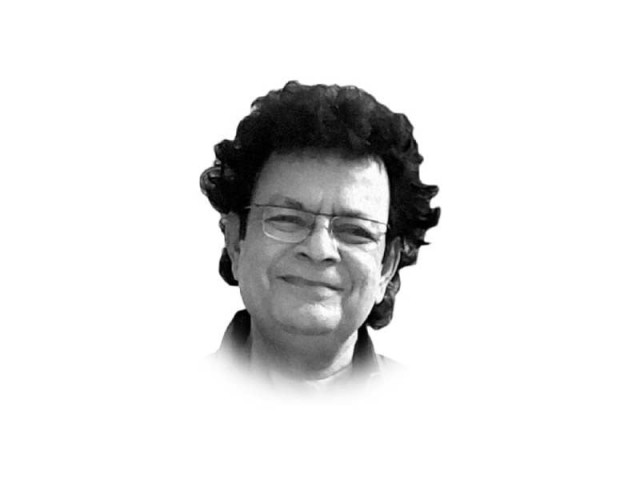Ancient gods have got a rebirth in Pakistan
History’s first major uprising for human rights came in Egypt

Italian astronomer Galileo Galilei has said, “I don’t understand how the God who gave me intellect can prevent me from using it. Whatever the meaning of human development, it must at least mean that people are given the right to be and live as human beings.”
In any society that talks about human rights, such situations should not be allowed in which people lose their humanity and are forced to give up their basic rights. When a state is run without treating people as human beings, it becomes like a vehicle that is running at full speed without a driver which has neither direction nor destination. A country, where people — save for the rulers, the politicians, the elite, the clergy, etc — are deprived of all rights and longing for freedom, prosperity and success can never sustain.
Among the first such states was that of Pharaoh Menes, who was the first to conquer the entire land of Egypt in 3200 BC. The power was in the hands of big landlords and aristocracy. On the land owned by the king and his courtiers or the places of worship, forced labour was taken from common people. Countless pyramids were erected through the labour of the ordinary people. It took 20 years to build the great pyramid of Giza, while the entire population of Egypt ruled under Pharaoh Ramses-III was forced to do compulsory labour.
A step further in the violation of human rights was when Sargon of Akkad became the first person who ruled over an empire in 23rd century BC. Historically, in ancient societies, the military and religious leaders have been the ones to decide what constitutes human rights who should get how many rights.
History’s first major uprising for human rights came in Egypt. In the mid-eighteenth century BC, there was a widespread revolt of peasants, craftsmen and slaves. The whole country was engulfed by it and Pharaoh had to abdicate. The wealthy landlords fled away from their palaces. The jewels of the mummified corpses of former kings were looted and they were taken out of their tombs and thrown out from the pyramids. Royal granaries and synagogues were seized, stores of food and valuables were distributed among the people and all the revenue and interest documents were destroyed.
In the 6th century BC, the teachings of Jainism and Buddhism spread in the sub-continent. Jainism preacher Mahavira, born in 599 BC, taught four principles on human rights: do not agonise anyone; do not steal; do not lie; and do not keep ownership. Jainism spread very rapidly. It showed the way of salvation to the people deprived of rights. Buddhism spread soon after Jainism. Siddhartha, later came to be known as Gautama Buddha, was born in 623 BC. He spent his whole life in preaching freedom from oppression and human rights.
Moreover, Confucius, the pioneer of human rights in China, emerged as a great scholar in history. About human rights and the state, the first philosopher to write in detail was Plato. The concept of human rights first formally developed in Rome, for Roman jurists, rights, law and justice were inseparable. Two important figures of the 16th century who not only fought for a better human life, but also made scarifies were Sir Thomas More and Tommaso Campanella. Both of them wrote almost identical books, the subject of which was a society in which human beings had the right not only to survive, but to live in freedom and prosperity.
In the 18th century, the French Revolution became the main front of struggle for human rights. France, ending class privileges and divisions, declared that people are born free and live free with equal rights.
According to Nietzsche, the gods died out sometime after the prehistoric age, then man himself became a god. And today the rule of this god is established in the whole world. But on the other hand, our misfortune is that where the gods died all over the world, many of them have taken birth again in Pakistan and have become masters of all human rights. Now there are a few hundred gods in the country with their altars and we are 250 million priests, who are deprived of all rights and waiting to be sacrificed.
Published in The Express Tribune, September 13th, 2023.
Like Opinion & Editorial on Facebook, follow @ETOpEd on Twitter to receive all updates on all our daily pieces.
















COMMENTS
Comments are moderated and generally will be posted if they are on-topic and not abusive.
For more information, please see our Comments FAQ